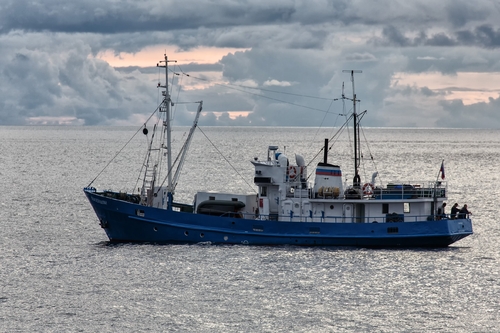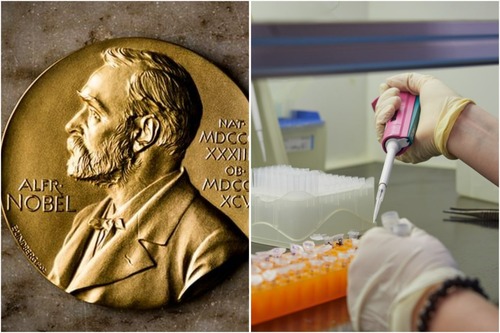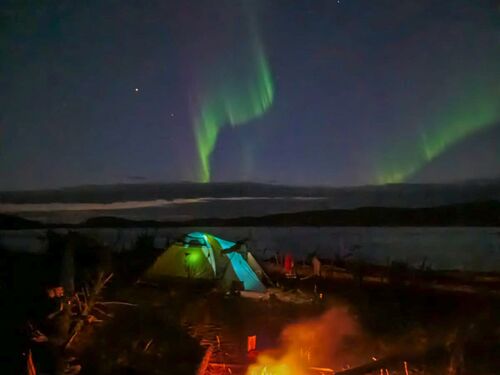In 2025, scientists of the Northern Water Problems Institute (NWPI) KarRC RAS went on three expeditions to study Lizhma, Kondopoga, and Velikaya bays, water around Kizhi Island, and the central deep-water region of Lake Onego. The aspects studied included sedimentary matter accumulation in Lake Onego, distribution of suspended solids, water chemical composition, state of bacterioplankton, phytoplankton, zooplankton, and pelagic macrozoobenthos. The expeditions provided NWPI specialists with in situ data required both for assessing the current state of Lake Onego and for analyzing patterns in its ecosystem functioning, their formalization in models, and predicting the lake’s future. Specialists stress the importance of monitoring Lake Onego for timely assessment of the state of the ecosystem and identifying its changes under anthropogenic and climatic impacts. Lake Onego is a waterbody of crucial significance for Karelia, as it holds strategic reserves of clean fresh water. The lake is a source of drinking water, a top-category fisheries reservoir, and is used for water-economy, recreational, and tourism purposes. The lake is included in NWPI’s research plans under state assignment and within research projects, so the institute’s staff regularly survey its ecosystem in the open-water region and in bays.
Due to its large size and sources of human pressure the lake is non-uniform, with variation in ecosystem functioning across regions of the lake. Special attention in the studies is given to areas exposed to pressure from municipal and industrial hubs, trout farms, or tourism ‒ Petrozavodsk, Kondopoga and Lizhma Bays, Gulf of Povenets, Kizhi Skerries. The 2025 surveys, e.g., demonstrated a pronounced development of microalgae in Kondopoga Bay in spring, indicating high human pressure on the bay. Phytoplankton levels in the summer were typical of this season. The institute's experts emphasized however that conclusions about the nature of any phenomena, about how potentially hazardous or harmless they are, can only be made upon proper chemical and biological studies in the specific area and with an understanding of how the local ecosystem functions. For instance, in April 2025, Karelian media reported an accumulation of greyish-brown fecal-like odorous substance in water at the shore of Lake Onego, near the town of Medvezhyegorsk. The district administration, referring to the Northern Water Problems Institute, attributed this to a proliferation of golden algae. However, NWPI specialists had not conducted any studies in the Gulf of Povenets, Lake Onego in the preceding two years. Moreover, they stressed at the Institute that even the general information on the thermodynamic regime of Lake Onego cannot be used to assess the specific situation that occurred in the littoral waters of Medvezhyegorsk in the Gulf of Povenets in April 2025 and alarmed the locals. This phenomenon requires additional research, which was lacking.
They also remarked at the Institute that no such massive blooming of golden algae as show in the photo has been seen in Lake Onego before. If this has indeed happened in the Gulf of Povenets, it should be classified as abnormal rather than a usual seasonal phenomenon. Specialists pointed out that such a scope of golden algae proliferation can be potentially dangerous due to the toxic substances released into water during cell degradation in some species. This makes the water unusable for humans and animals. To detect the potential hazard, one should at least examine a water sample under microscope to identify the species composition of the microalgae.
News

October 20, 2025
Scientists of KarRC RAS stress the importance of monitoring Lake Onego for timely assessment of the wellbeing of its ecosystem
In the summer, Northern Water Problems Institute KarRC RAS carried out field surveys of Lake Onego, collecting material from both the central part of the lake and the bays.
In the summer, Northern Water Problems Institute KarRC RAS carried out field surveys of Lake Onego, collecting material from both the central part of the lake and the bays.
See also:

October 19, 2025
Karelian scientists comment on the discoveries winning the Nobel Prize 2025
This week, final announcements of the 2025 Nobel Prize laureates were made. The entire scientific community and the world in general followed the news from the Royal Swedish Academy of Sciences. Specialists at the Karelian Research Centre RAS commented on the prize awards and the implications of the winning work in their own and related fields (in physiology and medicine; physics; and economic sciences), and talked about the research conducted in these areas at KarRC RAS.
This week, final announcements of the 2025 Nobel Prize laureates were made. The entire scientific community and the world in general followed the news from the Royal Swedish Academy of Sciences. Specialists at the Karelian Research Centre RAS commented on the prize awards and the implications of the winning work in their own and related fields (in physiology and medicine; physics; and economic sciences), and talked about the research conducted in these areas at KarRC RAS.

October 17, 2025
Zoologists and ichthyoparasitologists are back from the first Paanajarvi expedition within a large-scope study of the park’s arctic environment
Staff of the Institute of Biology KarRC RAS returned from the first expedition to the Paanajarvi National Park within a new project for integrated study of arctic natural features. Specialists in fish parasitology assessed the species composition and abundance of the Olanga River fishes, first of all grayling and brown trout, and their parasites, while zoologists examined the natural systems where winter track counts and key summertime activities would be carried out.
Staff of the Institute of Biology KarRC RAS returned from the first expedition to the Paanajarvi National Park within a new project for integrated study of arctic natural features. Specialists in fish parasitology assessed the species composition and abundance of the Olanga River fishes, first of all grayling and brown trout, and their parasites, while zoologists examined the natural systems where winter track counts and key summertime activities would be carried out.

October 14, 2025
Karelian economist’s scholarly work is used to develop innovation systems in Arctic regions
Economist Sergey Tishkov is among winners of the international competition of scientific, R&D, and innovative advances in the development and use of the Arctic and the continental shelf. The laureates were celebrated in St. Petersburg during the RAO/CIS Offshore 2025 Forum. The researcher has come up with a theory and methodology for forming innovation systems for Arctic regions. His outputs are already applied in districts of Karelia and have been recommended by the Russian Ministry of Agriculture for inclusion in the national program “Development of the Russian fish industry sector”.
Economist Sergey Tishkov is among winners of the international competition of scientific, R&D, and innovative advances in the development and use of the Arctic and the continental shelf. The laureates were celebrated in St. Petersburg during the RAO/CIS Offshore 2025 Forum. The researcher has come up with a theory and methodology for forming innovation systems for Arctic regions. His outputs are already applied in districts of Karelia and have been recommended by the Russian Ministry of Agriculture for inclusion in the national program “Development of the Russian fish industry sector”.



